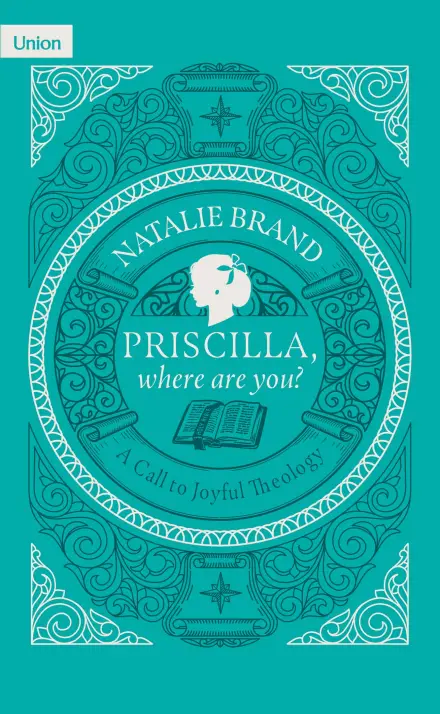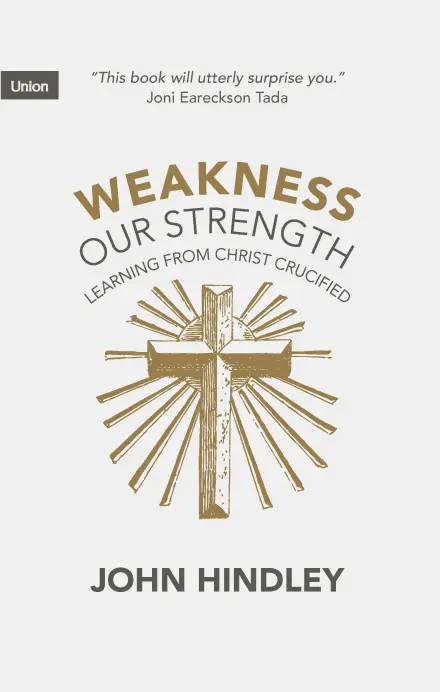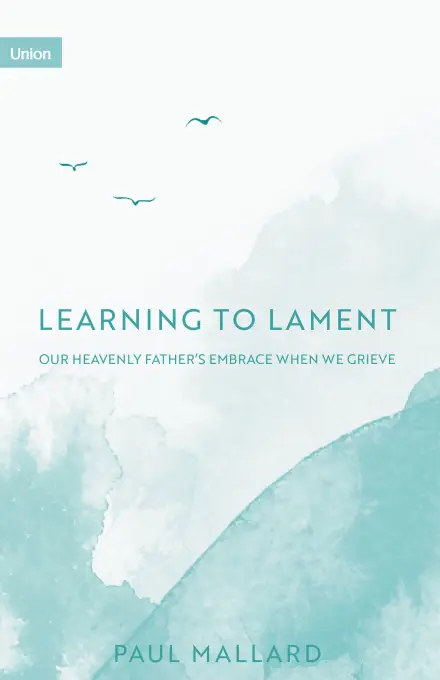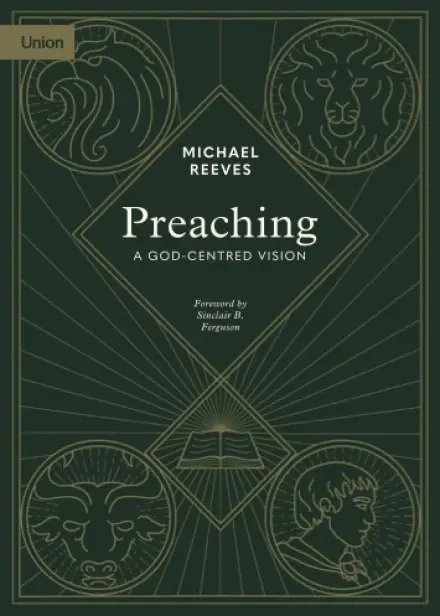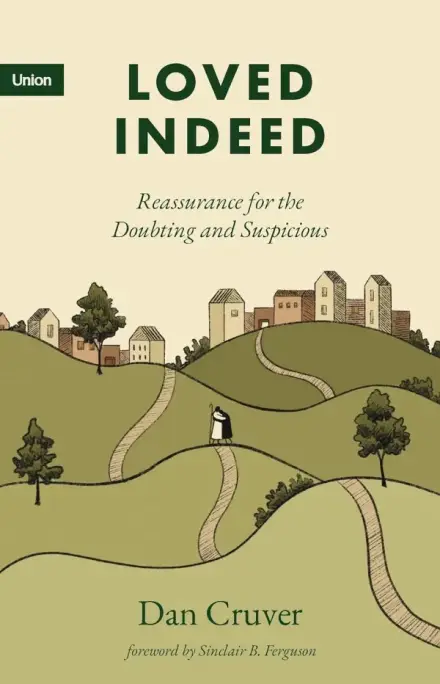Unbreakable
Gets straight to the point and humorous making it very accessible even for a non-reader. Really good introduction to the doctrine of Scripture. Start with this short book if you want to know more about this doctrine!
Nick Brake
Short, punchy...
Gets straight to the point and humorous making it very accessible even for a non-reader. Really good introduction to the doctrine of Scripture. Start with this short book if you want to know more about this doctrine!
Nick Brake
Unbreakable
This is a short review of a useful short book that I found very helpful in different contexts over the summer. Andrew Wilson will likely be known to many readers of this blog, and he’s worth following on Twitter as a thoughtful, theological, pastoral Tweeter. This review, though, is of a short little book in the Union Theology series, edited by Mike Reeves, which (in my reading – I enjoyed Reeves’ little book on prayer) are bite–size, head–and–heart–together little theological morsels. This will be a short review, because its a short book and I think it bears reading.
This is a book which I think makes a powerful, Jesus–centred case for taking the Bible seriously. Lots of books seeking to discuss ‘biblical authority’, or variations on that theme, start with evidence, with literary theory, or tradition. None of these are inherently bad things. Andrew’s book is much simpler, and straight to the point: we should trust Scripture because Jesus did. This is not a deep theological treatise – this is a distillation of what Jesus said, and is a helpful book for thinking us through Scripture and how we might want to relate to it.
I’ve noted the brevity of this book – at just under 80 pages including notes it is very accessible and readable – and this gives a clue as to its strengths and weaknesses. This is a great book to give to new Christians, people who like Christ but not Christians, and perhaps for young people wanting to start to think theologically. This is not a book for theology students to quote in essays – but I have found its content and argument useful and edifying for theology students who I work with and alongside in and around Theology Network. If this book were to only whet your appetite, then Andrew helpfully adds five solid suggestions for further reading.
This is not a book that is internally focused, however. Whilst there are nods or implicit mentions of debates within Christianity (like the amusing naming of a chapter ‘True Like Jazz’, which just sounds like a book a friend of mine likes…) this is actually a book designed to fuel and provoke mission. We can tell the world the good news of Jesus, because it has a firm foudnation in him, and is communicable. I particularly resonated, in that missional sense, with the closing words of the final chapter:
“Bibliolatry – the worship of the Bible – is not the main problem in our day. Most people’s view of the Bible is too low, rather than too high. But as with any good gift, there is the danger of idolatry. The Scriptures are there to point to God: Father, Son and Holy Spirit. We most honour them when we find our life, and our joy, in him”
The reason that most people have a low view of Scripture, I would agree with Andrew, is because they don’t know Jesus. And the reason some Christians have distorted views of Scripture is because we can often fall into the trap of elevating the text over the subject and author, Jesus. This book is a helpful nudge for both kinds of people.
In conclusion, I would encourage people to read this. If you run a Church or CU or similar, get a bunch. If you are studying theology, read over this quickly and get stuck into some of the things Andrew recommends. I used this in preparation for an evangelistic talk on ‘Why trust the Bible’ – and found it went down surprisingly well as an argument with a wide range of people at that university setting. ‘Unbreakable’ is a solid addition to the Union Theology series, and one that I’d recommend to pretty much anyone.
Thomas Creedy
Solid
This is a short review of a useful short book that I found very helpful in different contexts over the summer. Andrew Wilson will likely be known to many readers of this blog, and he’s worth following on Twitter as a thoughtful, theological, pastoral Tweeter. This review, though, is of a short little book in the Union Theology series, edited by Mike Reeves, which (in my reading – I enjoyed Reeves’ little book on prayer) are bite–size, head–and–heart–together little theological morsels. This will be a short review, because its a short book and I think it bears reading.
This is a book which I think makes a powerful, Jesus–centred case for taking the Bible seriously. Lots of books seeking to discuss ‘biblical authority’, or variations on that theme, start with evidence, with literary theory, or tradition. None of these are inherently bad things. Andrew’s book is much simpler, and straight to the point: we should trust Scripture because Jesus did. This is not a deep theological treatise – this is a distillation of what Jesus said, and is a helpful book for thinking us through Scripture and how we might want to relate to it.
I’ve noted the brevity of this book – at just under 80 pages including notes it is very accessible and readable – and this gives a clue as to its strengths and weaknesses. This is a great book to give to new Christians, people who like Christ but not Christians, and perhaps for young people wanting to start to think theologically. This is not a book for theology students to quote in essays – but I have found its content and argument useful and edifying for theology students who I work with and alongside in and around Theology Network. If this book were to only whet your appetite, then Andrew helpfully adds five solid suggestions for further reading.
This is not a book that is internally focused, however. Whilst there are nods or implicit mentions of debates within Christianity (like the amusing naming of a chapter ‘True Like Jazz’, which just sounds like a book a friend of mine likes…) this is actually a book designed to fuel and provoke mission. We can tell the world the good news of Jesus, because it has a firm foudnation in him, and is communicable. I particularly resonated, in that missional sense, with the closing words of the final chapter:
“Bibliolatry – the worship of the Bible – is not the main problem in our day. Most people’s view of the Bible is too low, rather than too high. But as with any good gift, there is the danger of idolatry. The Scriptures are there to point to God: Father, Son and Holy Spirit. We most honour them when we find our life, and our joy, in him”
The reason that most people have a low view of Scripture, I would agree with Andrew, is because they don’t know Jesus. And the reason some Christians have distorted views of Scripture is because we can often fall into the trap of elevating the text over the subject and author, Jesus. This book is a helpful nudge for both kinds of people.
In conclusion, I would encourage people to read this. If you run a Church or CU or similar, get a bunch. If you are studying theology, read over this quickly and get stuck into some of the things Andrew recommends. I used this in preparation for an evangelistic talk on ‘Why trust the Bible’ – and found it went down surprisingly well as an argument with a wide range of people at that university setting. ‘Unbreakable’ is a solid addition to the Union Theology series, and one that I’d recommend to pretty much anyone.
Thomas Creedy
Unbreakable
This is a great little book. Wilson writes with an easy and engaging style and gets right to the heart of the issue. Would help anyone grow in their confidence in the Bible. Highly recommended.
Philip Sweeting
Short and punchy
This is a great little book. Wilson writes with an easy and engaging style and gets right to the heart of the issue. Would help anyone grow in their confidence in the Bible. Highly recommended.
Philip Sweeting
Unbreakable
If Christian books can be likened to food, this bite–size book (78 pages) is a snack bar – one that is both nutritious and appetising.
The subject is exactly what the subtitle says: ‘What the Son of God said about the Word of God.’ It takes us back to where our doctrine of Scripture must begin. Despite this narrow focus, Wilson provides a framework to address some of the wider questions and objections that arise when we say the Bible is God’s Word. For example, he quotes Jesus’s response in John 10:35 to make the point that when we face a difficulty with the Bible it is not the Bible that is ‘broken’, but you or me. Jesus insisted on the coherence of the Scriptures (Mark 12:24), and understanding the way truth is progressively revealed helps us to deal with passages that appear to be in conflict. In a similar way Wilson deals with the authority, inspiration, centre (Christ), canon, fulfilment, clarity, and sufficiency of Scripture. He also has chapters on the teaching of Scripture that people don’t like (e.g. judgment, miracles and sex), the misuse of Scripture and finally some guidelines for interpretation.
It is all creatively put together and attractively written, proving that nutritious food can be a pleasure to eat. However, we cannot live (or live healthily) on snacks alone. Our study of Scripture will always provoke hard questions that cannot be adequately addressed in a short book. My hope is that those who have not read anything else on the doctrine of Scripture would read this book and that it would whet their appetite to chew and digest more substantial engagements of a doctrine we cannot and must not avoid.
Stephen Lloyd
Nutritious
If Christian books can be likened to food, this bite–size book (78 pages) is a snack bar – one that is both nutritious and appetising.
The subject is exactly what the subtitle says: ‘What the Son of God said about the Word of God.’ It takes us back to where our doctrine of Scripture must begin. Despite this narrow focus, Wilson provides a framework to address some of the wider questions and objections that arise when we say the Bible is God’s Word. For example, he quotes Jesus’s response in John 10:35 to make the point that when we face a difficulty with the Bible it is not the Bible that is ‘broken’, but you or me. Jesus insisted on the coherence of the Scriptures (Mark 12:24), and understanding the way truth is progressively revealed helps us to deal with passages that appear to be in conflict. In a similar way Wilson deals with the authority, inspiration, centre (Christ), canon, fulfilment, clarity, and sufficiency of Scripture. He also has chapters on the teaching of Scripture that people don’t like (e.g. judgment, miracles and sex), the misuse of Scripture and finally some guidelines for interpretation.
It is all creatively put together and attractively written, proving that nutritious food can be a pleasure to eat. However, we cannot live (or live healthily) on snacks alone. Our study of Scripture will always provoke hard questions that cannot be adequately addressed in a short book. My hope is that those who have not read anything else on the doctrine of Scripture would read this book and that it would whet their appetite to chew and digest more substantial engagements of a doctrine we cannot and must not avoid.
Stephen Lloyd
Unbreakable
I’m sure it is difficult to write a short book, seeing as it’s certainly difficult to write a short book review! I am attempting a short review of a short, but engaging, book by Andrew Wilson called Unbreakable: What the Son of God Said About the Word of God.
Unbreakable
In Unbreakable, Wilson lets Jesus be our guide to the Bible: “I trust the Bible because I trust in Jesus” (p10). So what does Jesus believe about the Bible? He trusted its authority (Matt 4:1–11), its inspiration (Matt 22:41–46), its unbreakability (John 10:22–39), and its coherence (Mark 12:18–27); and that’s all in the first four chapters. All chapters handle different aspects of Jesus’ relationship with God’s Word. The writing is quirky, winsome and clever – but never too clever. In fact, the chapter And it Happened was so poetically written that it was like reading a (little–‘o’) orthodox Rob Bell; much like a musician who employs silence, the page had so much white space!
My complaints are so miniscule in comparison to my enjoyment, but complain I must. Aside from a take on Psalm 82 that I consider faulty (human kings rather than spiritual beings), I’m unsure why the poetic survey mentioned above, subtitled The Storyline of Scripture, ended with the resurrection. Even a full–preterist would complain that he didn’t get so far as AD70! Perhaps Wilson was simply tracing creation to the beginning of new creation? But still, The Lord of the Rings doesn’t end with the appearance of Gandalf the White to Aragorn, Gimli and Legolas, and neither does our story.
But back to the positives. In addition to Wilson’s excellent approach, writing, and message, I took delight in his subversive “skewering” of the New Marcionism. Since Wilson has tangled with them before, he shrewdly (and intentionally?) used their own “Jesus–lens” (or “tea–strainer“) approach against them by showing Jesus’ absolute commitment to even the “difficult texts” in the Old Testament (Luke 17:26–29), while creating some of His own in the process (Matt 19:4–6)!
And did I mention that Unbreakable is small? 78 pages with notes, 65 pages without. Chapters average 4 pages. This results in punchy, bite–sized chapters that each leave the reader something to consider. Wilson covers a surprising amount of ground, even discussing canon and interpretation issues.
While Unbreakable would be excellent for newer believers, it should not be overlooked for this reason. I enjoyed Unbreakable like a fresh and satisfying afternoon snack (this is not me bagging the book, it’s just not intended to be a feast). In fact, its small size only adds to its worth. Of all the books I have read this year, I can see myself recommending Unbreakable most widely.
Lindsay Kennedy
Recommending widely
I’m sure it is difficult to write a short book, seeing as it’s certainly difficult to write a short book review! I am attempting a short review of a short, but engaging, book by Andrew Wilson called Unbreakable: What the Son of God Said About the Word of God.
Unbreakable
In Unbreakable, Wilson lets Jesus be our guide to the Bible: “I trust the Bible because I trust in Jesus” (p10). So what does Jesus believe about the Bible? He trusted its authority (Matt 4:1–11), its inspiration (Matt 22:41–46), its unbreakability (John 10:22–39), and its coherence (Mark 12:18–27); and that’s all in the first four chapters. All chapters handle different aspects of Jesus’ relationship with God’s Word. The writing is quirky, winsome and clever – but never too clever. In fact, the chapter And it Happened was so poetically written that it was like reading a (little–‘o’) orthodox Rob Bell; much like a musician who employs silence, the page had so much white space!
My complaints are so miniscule in comparison to my enjoyment, but complain I must. Aside from a take on Psalm 82 that I consider faulty (human kings rather than spiritual beings), I’m unsure why the poetic survey mentioned above, subtitled The Storyline of Scripture, ended with the resurrection. Even a full–preterist would complain that he didn’t get so far as AD70! Perhaps Wilson was simply tracing creation to the beginning of new creation? But still, The Lord of the Rings doesn’t end with the appearance of Gandalf the White to Aragorn, Gimli and Legolas, and neither does our story.
But back to the positives. In addition to Wilson’s excellent approach, writing, and message, I took delight in his subversive “skewering” of the New Marcionism. Since Wilson has tangled with them before, he shrewdly (and intentionally?) used their own “Jesus–lens” (or “tea–strainer“) approach against them by showing Jesus’ absolute commitment to even the “difficult texts” in the Old Testament (Luke 17:26–29), while creating some of His own in the process (Matt 19:4–6)!
And did I mention that Unbreakable is small? 78 pages with notes, 65 pages without. Chapters average 4 pages. This results in punchy, bite–sized chapters that each leave the reader something to consider. Wilson covers a surprising amount of ground, even discussing canon and interpretation issues.
While Unbreakable would be excellent for newer believers, it should not be overlooked for this reason. I enjoyed Unbreakable like a fresh and satisfying afternoon snack (this is not me bagging the book, it’s just not intended to be a feast). In fact, its small size only adds to its worth. Of all the books I have read this year, I can see myself recommending Unbreakable most widely.
Lindsay Kennedy


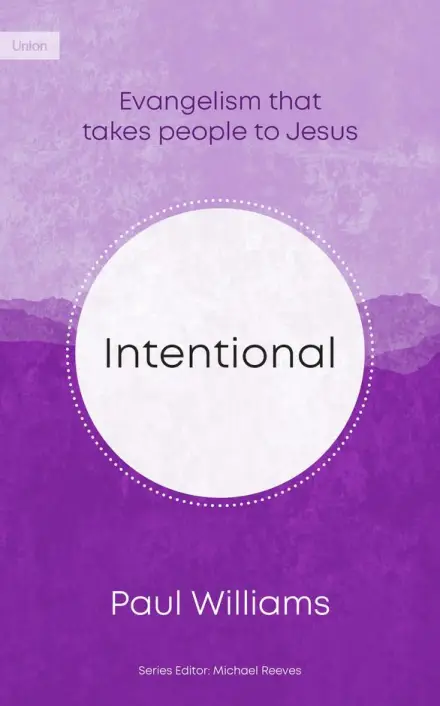
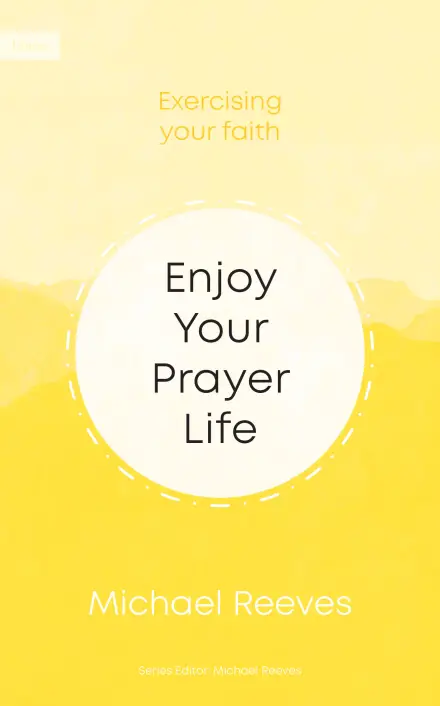
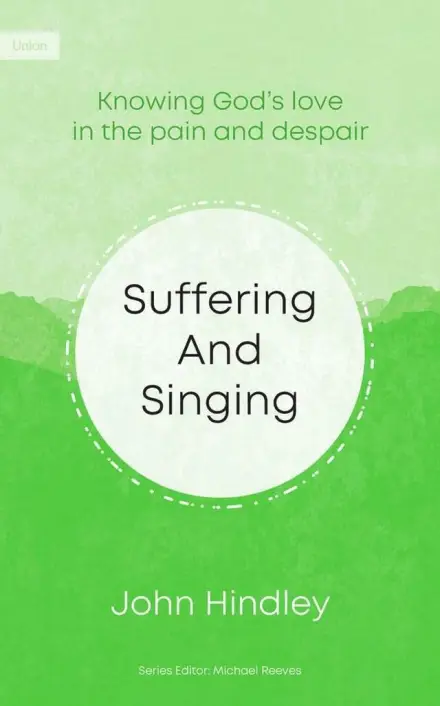


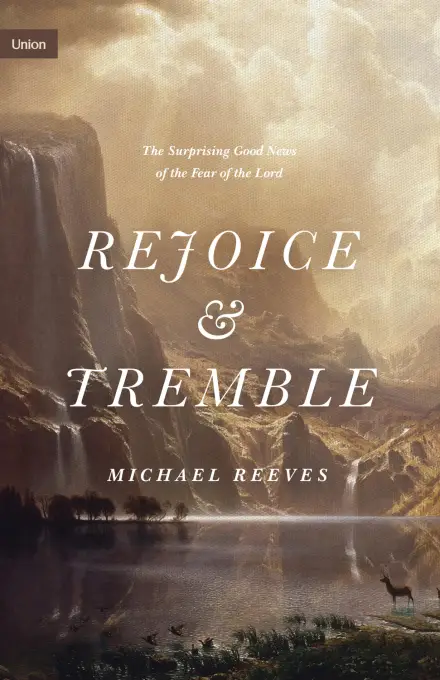
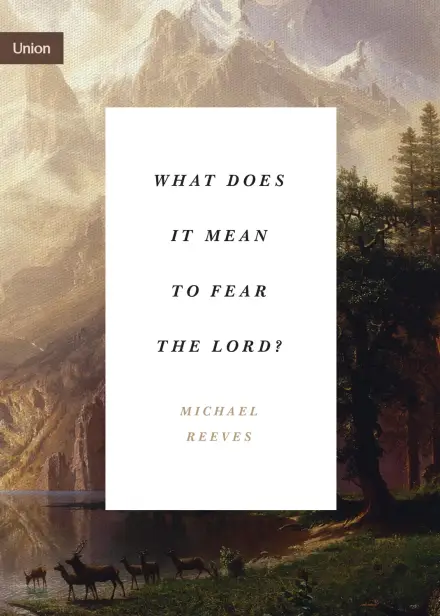

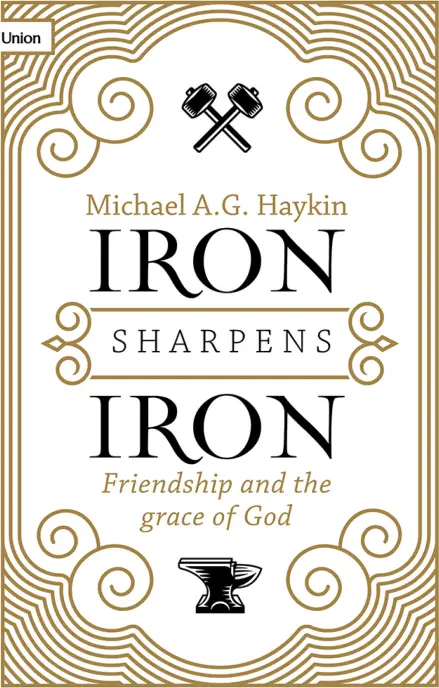
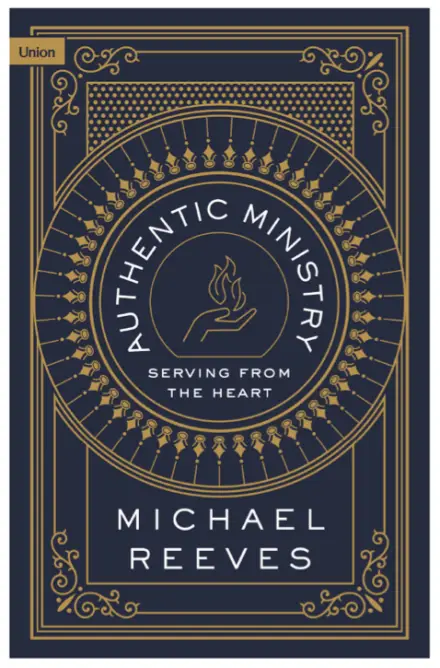
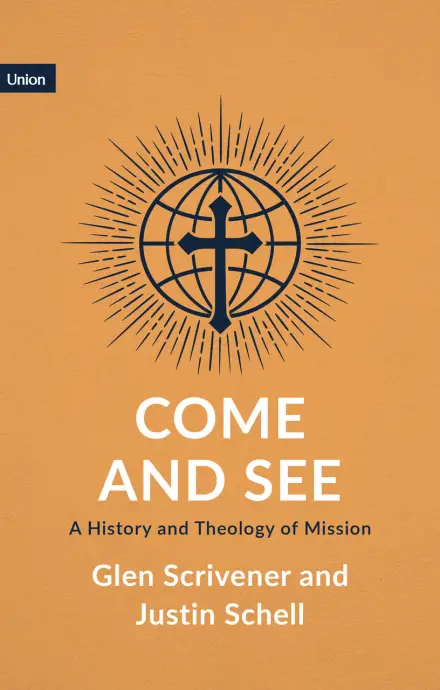
![Come and See [Video Series]](/img/paths/assets/product_media/9093/CMNSEVDCH.jpg/bf9a57605b21812f54c5d6aa89533ce3/CMNSEVDCH.webp)

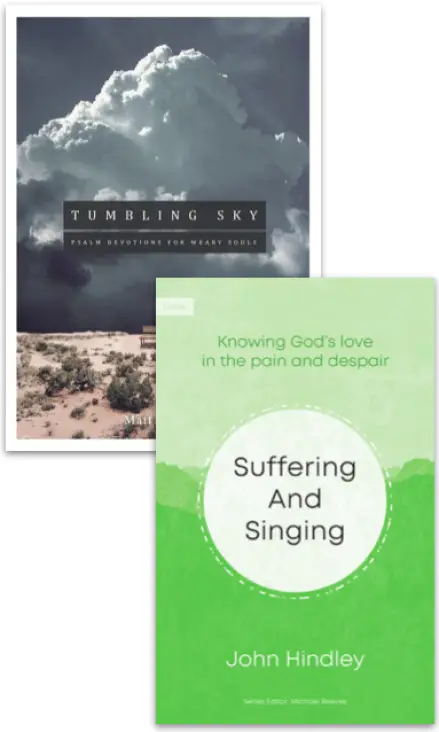
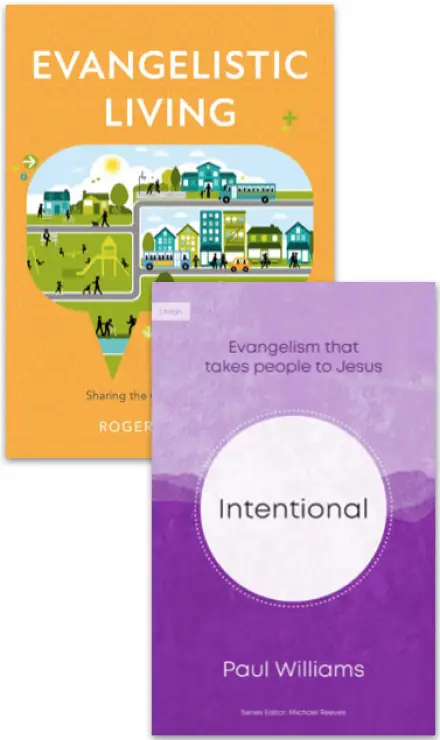
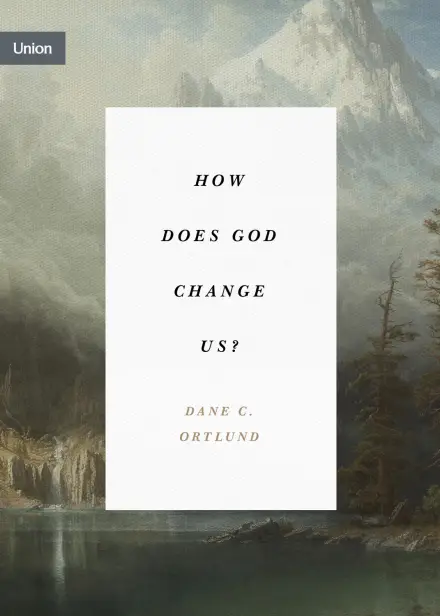


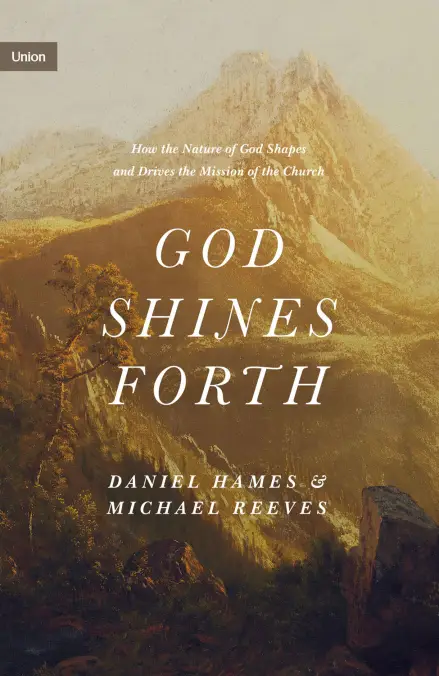
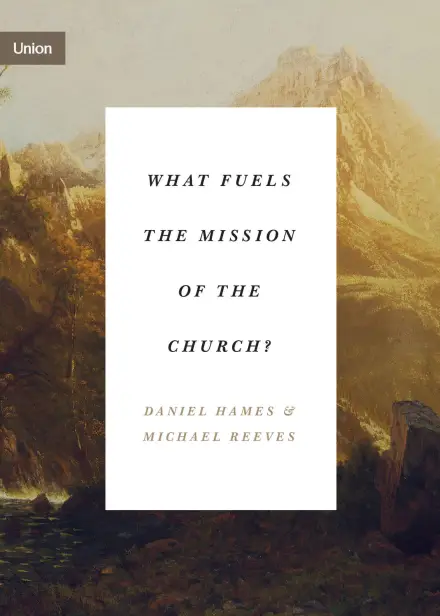
![Custos Animae [Video Series]](/img/paths/assets/product_media/10562/CSTSVDHMUSE.jpg/dac7816f799c79ca0960c3e962748610/CSTSVDHMUSE.webp)
